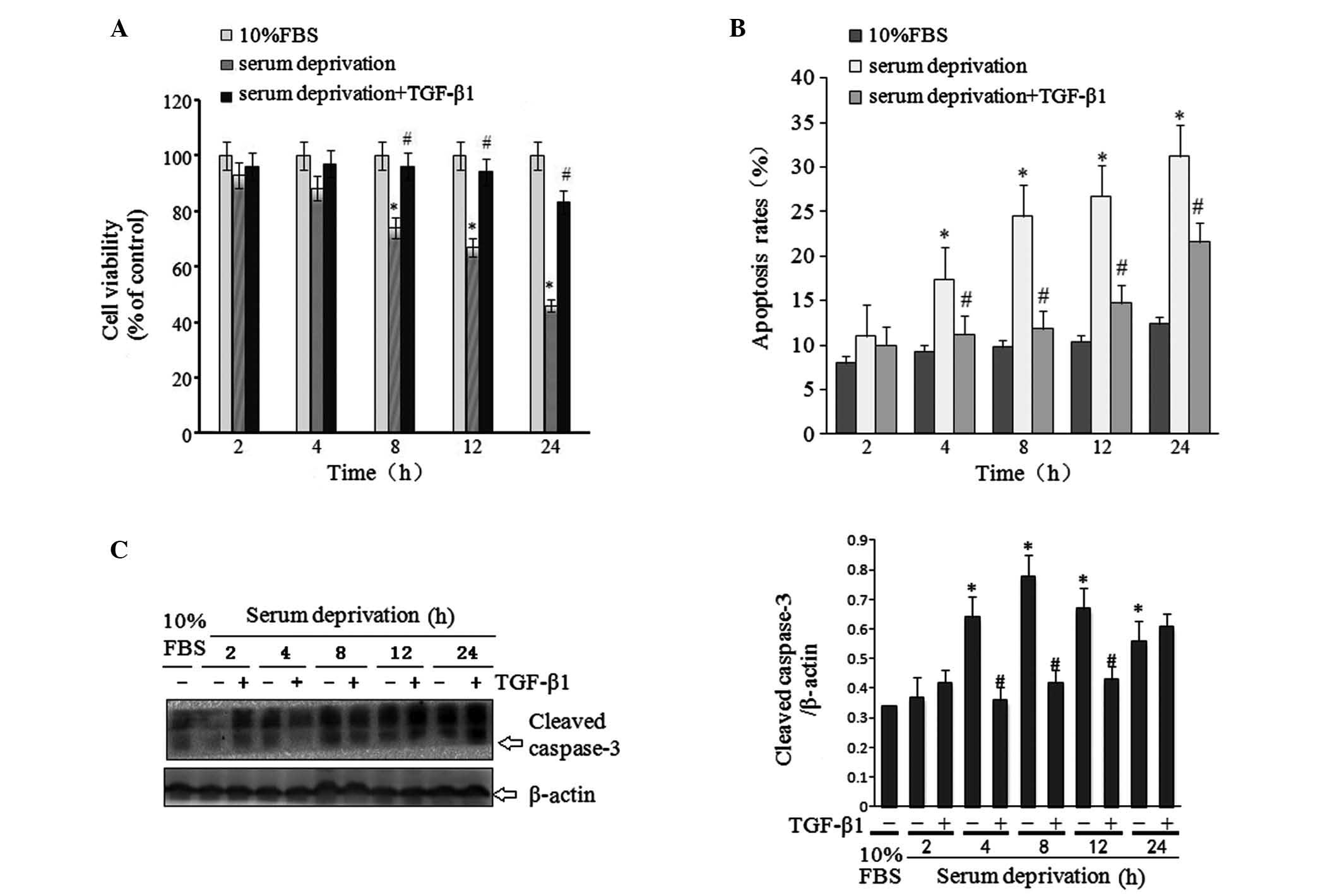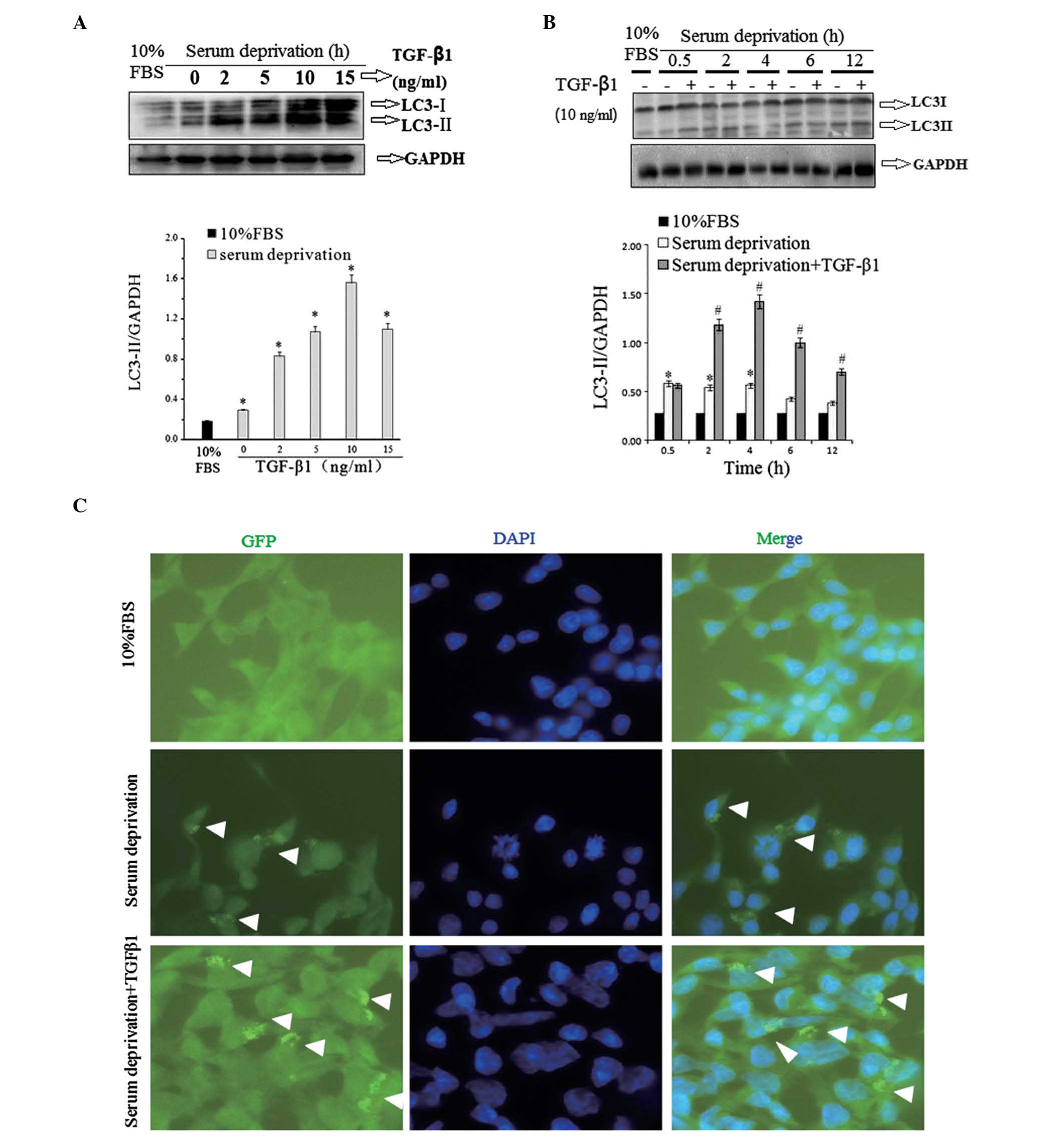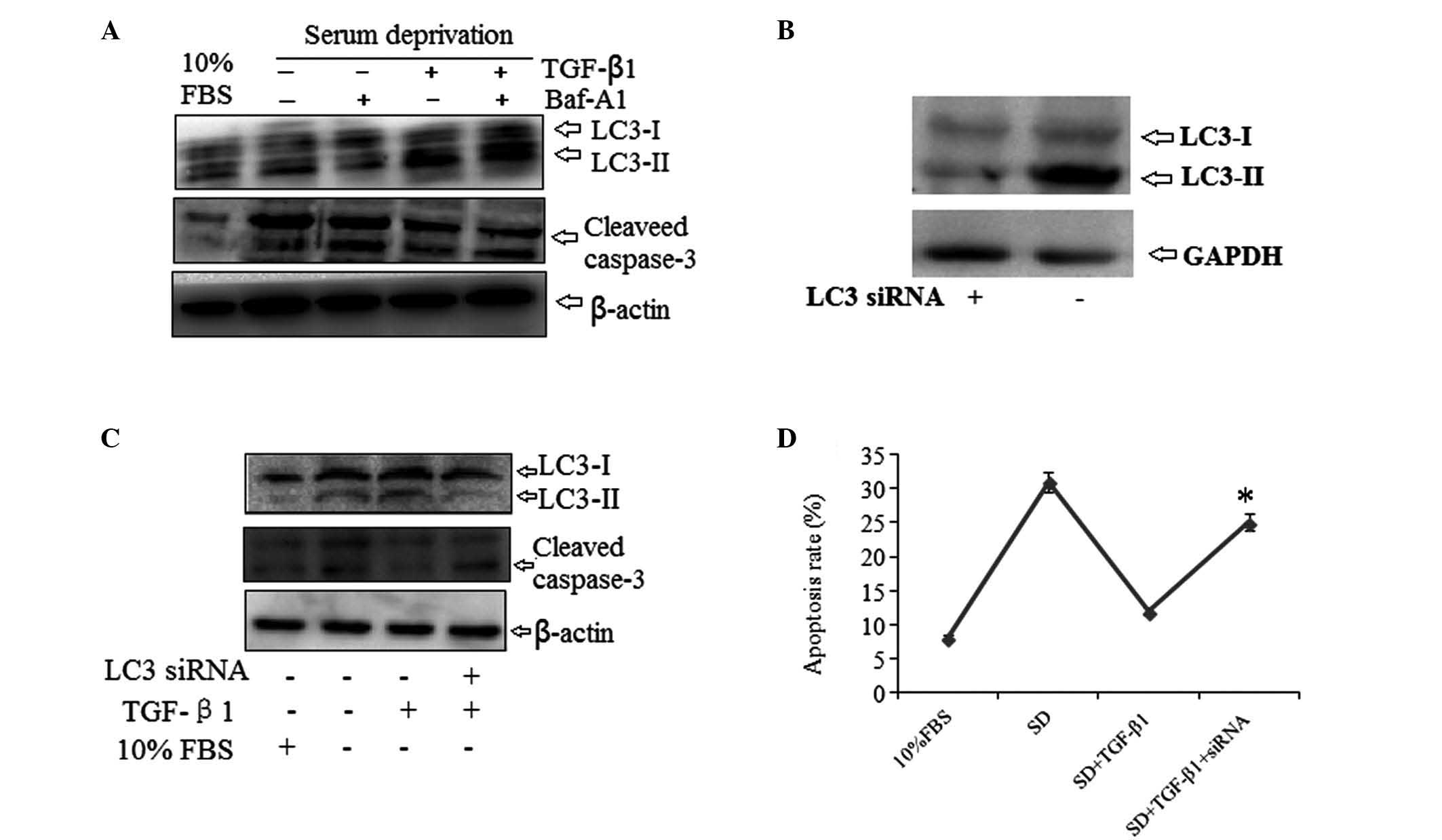|
1
|
Ni HM, Williams JA, Yang H, Shi YH, Fan J
and Ding WX: Targeting autophagy for the treatment of liver
diseases. Pharmacol Res. 66:463–474. 2012. View Article : Google Scholar : PubMed/NCBI
|
|
2
|
Klionsky DJ: The autophagy connection. Dev
Cell. 19:11–12. 2010. View Article : Google Scholar
|
|
3
|
González-Polo RA, Boya P, Pauleau AL, et
al: The apoptosis/autophagy paradox: autophagic vacuolization
before apoptotic death. J Cell Sci. 118:3091–3102. 2005.PubMed/NCBI
|
|
4
|
Komatsu M: Liver autophagy: physiology and
pathology. J Bio Chem. 152:5–15. 2012.PubMed/NCBI
|
|
5
|
Sasaki M, Miyakoshi M, Sato Y and Nakanuma
Y: Autophagy may precede cellular senescence of bile ductular cells
in ductular reaction in primary biliary cirrhosis. Dig Dis Sci.
57:660–666. 2012. View Article : Google Scholar
|
|
6
|
Bhogal RH and Afford SC: Autophagy and the
Liver. Autophagy - A Double-Edged Sword - Cell Survival or Death?
Bailly Yannick: InTech; Rijeka, Croatia: pp. 165–185. 2013
|
|
7
|
Rautou PE, Mansouri A, Lebrec D, Durand F,
Valla D and Moreau R: Autophagy in liver diseases. J Hepatol.
53:1123–1134. 2010. View Article : Google Scholar
|
|
8
|
Hilscher M, Hernandez-Gea V and Friedman
SL: Autophagy and mesenchymal cell fibrogenesis. Biochim Biophys
Acta. 1831.972–978. 2012.PubMed/NCBI
|
|
9
|
Hidvegi T, Ewing M, Hale P, et al: An
autophagy-enhancing drug promotes degradation of mutant
alpha1-antitrypsin Z and reduces hepatic fibrosis. Science.
329:229–232. 2010. View Article : Google Scholar : PubMed/NCBI
|
|
10
|
Kim SI, Na HJ, Ding Y, Wang Z, Lee SJ and
Choi ME: Autophagy promotes intracellular degradation of type I
collagen induced by transforming growth factor (TGF)-β1. J Biol
Chem. 287:11677–11688. 2012.PubMed/NCBI
|
|
11
|
Hernández-Gea V, Ghiassi-Nejad Z,
Rozenfeld R, et al: Autophagy releases lipid that promotes
fibrogenesis by activated hepatic stellate cells in mice and in
human tissues. Gastroenterology. 142:938–946. 2012.PubMed/NCBI
|
|
12
|
Thoen LF, Guimarães EL, Dollé L, et al: A
role for autophagy during hepatic stellate cell activation. J
Hepatol. 55:1353–1360. 2011. View Article : Google Scholar : PubMed/NCBI
|
|
13
|
Yin XM, Ding WX and Gao W: Autophagy in
the liver. Hepatology. 47:1773–1785. 2008. View Article : Google Scholar : PubMed/NCBI
|
|
14
|
Rubinsztein DC, Gestwicki JE, Murphy LO
and Klionsky DJ: Potential therapeutic applications of autophagy.
Nat Rev Drug Discov. 6:304–312. 2007. View
Article : Google Scholar : PubMed/NCBI
|
|
15
|
Deretic V and Levine B: Autophagy,
immunity and microbial adaptations. Cell Host Microbe. 5:527–549.
2009. View Article : Google Scholar : PubMed/NCBI
|
|
16
|
Friedman SL: Hepatic fibrosis - overview.
Toxicology. 254:120–129. 2008. View Article : Google Scholar
|
|
17
|
Brenner DA: Molecular pathogenesis of
liver fibrosis. Trans Am Clin Climatol Assoc. 120:361–368.
2009.PubMed/NCBI
|
|
18
|
Iimuro Y and Brenner DA: Matrix
metalloproteinase gene delivery for liver fibrosis. Pharm Res.
25:249–258. 2008. View Article : Google Scholar : PubMed/NCBI
|
|
19
|
Gajewska M, Gajkowska B and Motyl T:
Apoptosis and autophagy induced by TGF-β1 in bovine mammary
epithelial BME-UV1 cells. J Physiol Pharmacol. 56(Suppl 3):
143–157. 2005.
|
|
20
|
Ding Y, Kim JK, Kim SI, Na HJ, Jun SY, Lee
SJ and Choi ME: TGF-{beta}1 protects against mesangial cell
apoptosis via induction of autophagy. J Biol Chem. 285:37909–37919.
2010. View Article : Google Scholar : PubMed/NCBI
|
|
21
|
Klionsky DJ, Abdalla FC, Abeliovich H, et
al: Guidelines for the use and interpretation of assays for
monitoring autophagy. Autophagy. 8:445–544. 2012. View Article : Google Scholar
|
|
22
|
Leask A and Abraham DJ: TGF beta signaling
and the fibrotic response. FASEB J. 18:816–827. 2004. View Article : Google Scholar : PubMed/NCBI
|
|
23
|
Nakerakanti S and Trojanowska M: The role
of TGF-β receptors in fibrosis. Open Rheumatol J. 6:156–162.
2012.
|
|
24
|
Roberts AB: Molecular and cell biology of
TGF-beta. Miner Electrolyte Metab. 24:111–119. 1998. View Article : Google Scholar
|
|
25
|
Roberts AB and Sporn MB: Physiological
actions and clinical applications of transforming growth
factor-beta (TGF-beta). Growth Factors. 8:1–9. 1993. View Article : Google Scholar : PubMed/NCBI
|
|
26
|
Brown TL, Patil S, Cianci CD, Morrow JS
and Howe PH: Transforming growth factor-beta induces caspase
3-independent cleavage of alphaII-spectrin (alpha-fodrin)
coincident with apoptosis. J Biol Chem. 274:23256–23262. 1999.
View Article : Google Scholar : PubMed/NCBI
|
|
27
|
Dai C, Yang J and Liu Y: Transforming
growth factor-beta1 potentiates renal tubular epithelial cell death
by a mechanism independent of Smad signaling. J Biol Chem.
278:12537–12545. 2003. View Article : Google Scholar : PubMed/NCBI
|
|
28
|
Chin BY, Petrache I, Choi AM and Choi ME:
Transforming growth factor beta1 rescues serum deprivation-induced
apoptosis via the mitogen-activated protein kinase (MAPK) pathway
in macrophages. J Biol Chem. 274:11362–11368. 1999. View Article : Google Scholar : PubMed/NCBI
|
|
29
|
Hara T, Kamura T and Nakayama K, Oshikawa
K, Hatakeyama S and Nakayama K: Degradation of p27(Kip1) at the
G(0)–G(1) transition mediated by a Skp2-independent ubiquitination
pathway. J Biol Chem. 276:48937–48943. 2001.PubMed/NCBI
|
|
30
|
Chen HH, Zhao S and Song JG: TGF-beta1
suppresses apoptosis via differential regulation of MAP kinases and
ceramide production. Cell Death Differ. 10:516–527. 2003.
View Article : Google Scholar : PubMed/NCBI
|
|
31
|
Maiuri MC, Zalckvar E, Kimchi A and
Kroemer G: Self-eating and self-killing: crosstalk between
autophagy and apoptosis. Nat Rev Mol Cell Biol. 8:741–752. 2007.
View Article : Google Scholar : PubMed/NCBI
|
|
32
|
Wang RC and Levine B: Autophagy in
cellular growth control. FEBS Lett. 584:1417–1426. 2010. View Article : Google Scholar : PubMed/NCBI
|
|
33
|
Suzuki HI, Kiyono K and Miyazono K:
Regulation of autophagy by transforming growth factor-β (TGF-β)
signaling. Autophagy. 6:645–647. 2010.
|


















